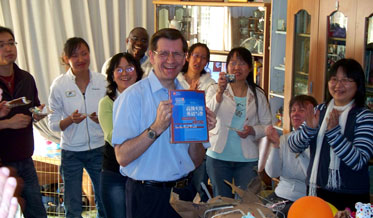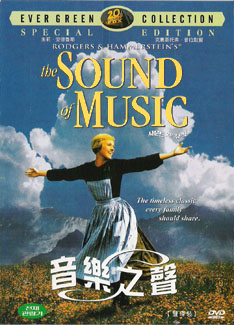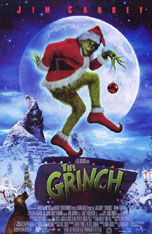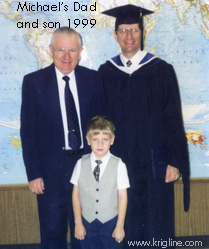(continued from left column)

Our plans failed
time and time again, but we persevered because we love being here to help
you improve your English, as well as helping you develop the skills,
values and relationships you need to be successful in life. We have the
strength to do that because, over the years, I’ve learned several keys to
perseverance. If you have a pen, you might want to write these down.
Keys to perseverance:
坚持的关键
1. Perseverance means to stay
on track, but be willing to transfer to a different train (and remember
that tracks imply both limitations and freedom).
坚持意味着保持在轨道上,但是愿意换乘到一列不同的火车上(并记住轨道既意味着限制、也意味着自由)。
2. Remember that life is
seasonal (but that means that both good and bad times will pass).
记住生命是有不同季节的(但这意味着美好的季节会过去、糟糕的季节也会过去)。
Dr Seuss had
seasons of success, and seasons of failure. During the 13 years it took me
to get my MA, I had seasons of work, and seasons of study. During my 15
years in China, I’ve spent seasons in several cities. Most of my students
have been wonderful, but in one short season they were terrible. But I
know that both good and bad times will pass. And my Dad’s advice has
helped me persevere many times: “Son, you can endure anything if
you know there is an ending date.” [Dr. Alan Krigline] Or as my
grandfather said: “When trouble comes, I remember that the Bible says ‘it
came to pass,’ it didn’t come to stay.” [Rube Holmstrom]
3. Everyone fails; determine
to be one of the few willing to get up and try again.
每个人都会失败;下定决心要作那少数愿意爬起来再次尝试的人之一。
On line, you’ll
find that many great people have said something like this:
Our greatest glory is not in
never falling, but in getting up every time we do.
–Confucius
人非圣贤,孰能无过;过而能改,善莫大焉。——孔子
You will fall.
You will fail. And only you can decide if you “will get up and try again.”
You also need to know how to learn from your falls. Failure isn’t the end,
but maybe it is a time to evaluate and modify
your goal.
4. You need a worthwhile
goal—“a map” (but celebrate the major steps that lead to that goal).
我需要一个有价值的目标——“一张地图”但要庆祝达到那目标的主要步骤)。
If your goal
isn’t worthwhile, it won’t have the power to help you persevere. To me, a
“worthwhile” goal is a goal that is bigger than “me and my own success.”
We would need another Lifetalk to talk about this, but for now, I’m just
advising you not to simply consider your own comfort, success or
income level. There are much better things to live for. And related to
this, you’ll find the strength to persevere if you take time to celebrate
your progress along the way; don’t just wait until the goal is achieved.
In 2008, I had a textbook published in China, but I celebrated when I got
permission to include certain materials, and celebrated when the contract
was signed, and celebrated (bought my son a puppy, actually!) when the
manuscript was sent to Beijing, and threw a big party when the books were
finally delivered. Learn to celebrate along the way.

5. To persevere, you need a
good “map and compass” (but a GPS is even better).
要坚持的话,你需要一个好的“地图和指南针”(但是全球定位系统更好)。
If you ever go
hiking, or even visiting an unfamiliar city, you need a good map and a
compass to tell you which way is north. The journey of life is no
different. I believe your goals are your “map,” and your moral values are
your “compass.”
A year ago, Luke
started this “authentic” series by mentioning several news items that make
it clear that many people have lost their moral compass. Throughout the
year, our Lifetalks have presented timeless truths to help you get back in
touch with what is right and wrong. We’ve talked about authentic beauty,
fun, listening, knowledge, success, wealth, community, direction, wisdom
and many more.
There are many
universal virtues. Confucius pointed to three—speak the truth, don’t yield
to anger, and be generous.[*1] All of those are also in the Bible, plus
many more. Moses, the great Law Giver, said don’t steal or kill, don’t
forget to rest, honor your parents, keep your word, put God first in your
life. The list in Hebrews 13 says to love like brothers, show hospitality,
remember those mistreated, sleep with only your wife/husband, don’t love
money, be content with what you have. People in most cultures would agree
that these virtues are good—even if many people do not practice them.
Did you ever
notice that people in every culture know that some things are right
and some are wrong? As we just saw, there is even wide agreement about
these virtues from culture to culture. AND more importantly, we all know
that we sometimes fall short of our own standards of right and wrong. Why?
Evolution can’t explain this internal moral compass, because it shouldn’t
be there. I believe this universal moral sense points to a God-given
universal law; a moral compass that is embedded in our DNA.
Clearly, we need
wisdom to know what is morally right and wrong, and without it, we
can easily get lost.
If our goals
are our map, and our moral values are our compass, I think
wisdom is our GPS. A GPS is even better than a map and compass because
it is a satellite view; the GPS of life is a higher view, an authoritative
voice from One who understands the bigger picture. Earlier, I told you
that I could persevere to remain in Xiamen, even without income, because
something was telling me that I belong here in this season of my
life. That “something” was my GPS, telling me to “press on” because it fit
into the bigger picture.
Where do we find wisdom?
我们到哪里寻找智慧? That is a
crucial question, and a very old question. The following was written
3000-4000 years ago.
“But where shall wisdom be found?
然而,智慧有何处可寻?
And where is the place of
understanding? 聪明之处在哪里呢?
Man does not know its
worth…
智慧的价值无人能知……
It cannot be bought for gold,
silver…or jewels…智慧非用黄金可得,也不能平白银为它的价值……贵重的红玛瑙,并蓝宝石,不足与较量;
It is hidden from the eyes of all
living…
是向一切有生命的眼目隐藏……
Even Death says,
灭没和死亡说:‘我们风闻其名。’
‘We have heard [only a] a rumor of
it with our ears.’
[But] “God understands the way to
wisdom…
神明白智慧的道路,……
And he said to man,
他对人说:
‘Behold, the fear of the Lord,
that is wisdom,
‘敬畏主就是智慧;
and to turn away from evil is
understanding.’”
远离恶便是聪明!’”
[abbreviated from Job 28, in the Bible]
I don’t have
time to explain this today, but because I fear (that is, revere)
the Lord, God gives me access to His wisdom—my GPS. So my GPS is God’s
Holy Spirit, and God uses both prayer and scripture like that bus app,
pointing me in the right way to go. God has a satellite view, so He
certainly understands the “bigger picture”!
If you ignore
these universal virtues—if you ignore the universal moral compass and
GPS—you might get rich/powerful/popular, you might still be
able to persevere, but sooner or later I think you’ll look back and
realize you are lost.
Well, we are
running out of time, and I’d like to sing one of my songs for you. Here
are Michael’s five keys to perseverance once again.
1. Perseverance means to stay
on track, but be willing to transfer to a different train (and remember
that tracks imply both limitations and freedom).
2. Remember that life is
seasonal (but that means that both good and bad times will pass).
3. Everyone fails; determine
to be one of the few willing to get up and try again.
4. You need a worthwhile
goal—“a map” (but celebrate the major steps that lead to that goal).
5. To persevere, you need a
good “moral compass” (but a GPS—heaven’s wisdom—is even better)
This song was
inspired by a classic novel called “Pilgrim’s Progress.” The story is an
allegory of life. Pilgrim is a man trying to escape from the burden of his
sin; his journey requires great perseverance. Many things tried to get him
off track. He faces the difficult road upward over the mountains of
temptation, past the swamp of selfish pleasure, through caverns of despair
and storms of test and trial; he must resist Vanity Fair—an “amusement
park” of distraction and fun that just wastes time and money. His
destination is Heaven, and his compass (GPS) is his Bible.
I’ve put the
lyrics to a fun, “country” tune. And I know it has difficult English
words. Feel free to take pictures of the screen so you can study them
later, or to write to me and ask for the words! You’ll also see that I
want YOU to help sing the chorus. Let’s try it!
(I sang the song "I'll Press On")
==========================
Still want to read more?
Here is some more insight from God’s PerSpective (GPS)
The heart of man plans his way,
but the Lord establishes his steps. Prov 16:9
“It is for man to plan, but for
Heaven to decide.” Chinese proverb
“Faith” is sort of like that app that uses a GPS to help us
find the right bus, or to know when it is coming. Someone said that
“faith” is just a long obedience in the same direction.
“Faith is to believe what we do
not see, and the reward of this faith is to see what we believe.”
Augustine
“Faith is a living, daring
confidence in God’s grace.” Martin Luther
“Faith is taking the first step
even when you don’t see the whole staircase.” Martin Luther King, Jr
“Faith never knows where it is
being led, but it loves and knows the One who is leading.” Oswald Chambers
“If everything in our lives can be explained on a natural
basis then we are not laying hold of the plan and purpose of the Lord
Jesus for our lives.” G Allen Fleece (Former Pres. of Columbia Biblical
Seminary)
More from the Bible:
The author of Hebrews: Therefore, since we are surrounded
by so great a cloud of witnesses, let us also lay aside every weight, and
sin which clings so closely, and let us run with endurance the race that
is set before us, looking to Jesus, the founder and perfecter of our
faith, who for the joy that was set before him endured the cross,
despising the shame, and is seated at the right hand of the throne of God.
Consider him who endured from sinners such hostility against himself, so
that you may not grow weary or fainthearted…
Therefore lift your drooping hands and strengthen your
weak knees, and make straight paths for your feet, so that what is lame
may not be put out of joint but rather be healed. Strive for peace with
everyone, and for the holiness without which no one will see the Lord. See
to it that no one fails to obtain the grace of God; that no “root of
bitterness” springs up and causes trouble, and by it many become defiled;
that no one is sexually immoral or unholy like Esau, who sold his
birthright for a single meal. (Hebrews 12:1-16)
James: Count it all joy, my brothers, when you meet trials
of various kinds, for you know that the testing of your faith produces
steadfastness (perseverance). And let steadfastness have its full effect,
that you may be perfect and complete, lacking in nothing. If any of you
lacks wisdom, let him ask God, who gives generously to all without
reproach, and it will be given him. But let him ask in faith, with no
doubting
(James 1:2-6)
Paul: Therefore, since we have been justified by faith, we
have peace with God through our Lord Jesus Christ. Through him we have
also obtained access by faith into this grace in which we stand, and we
rejoice in hope of the glory of God. Not only that, but we rejoice in our
sufferings, knowing that suffering produces endurance, and endurance
produces character, and character produces hope, and hope does not put us
to shame, because God's love has been poured into our hearts through the
Holy Spirit who has been given to us. (Romans 5:1-5)
Joseph: slave prisoner Prime Minister “to save many”
David: His life showed tremendous perseverance. His
“compass” was set to honor God and His anointed, even when being hounded
by “His anointed” who was trying to kill David! The reward? God promised
David that one of his descendants (the Messiah) would sit on the throne
forever!



 As Thomas Edison said, “Many of life's failures are people who did
not realize how close they were to success when they gave up.”
As Thomas Edison said, “Many of life's failures are people who did
not realize how close they were to success when they gave up.”

